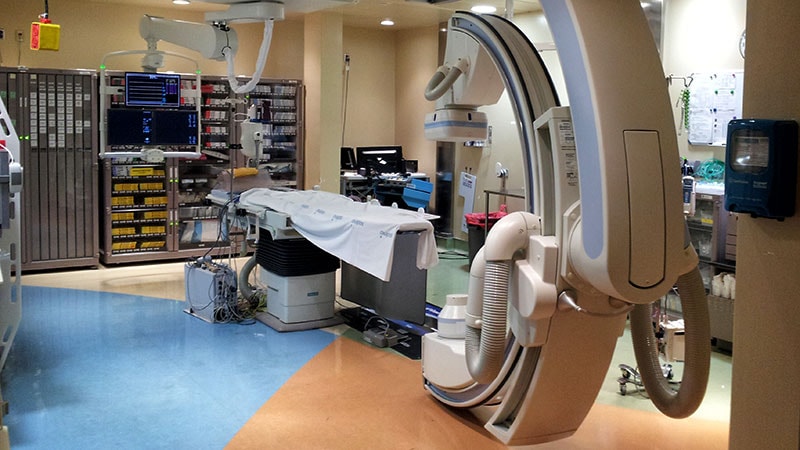Effective Strategies for Reducing Waste in the Cath Lab
Belangrijkste concepten
Implementing eco-friendly practices in the catheterization laboratory can significantly reduce waste production and environmental impact.
Samenvatting
The article discusses the efforts of Estelle Myny and her colleagues at Jacques Cartier Hospital in France to address waste reduction in the catheterization laboratory. Key points include:
Importance of evolving practices for ecological and economic benefits.
Strategies to minimize hospital waste by disposing of heavily blood-soaked materials only.
Adaptation of angioplasty procedures to reduce waste production.
Emphasis on turning off equipment to reduce energy consumption.
Suggestions for optimizing medication stock management and improving sorting channels.
Commitment to sustainable development and eco-responsibility as a team effort.
Tips for Reducing Waste in the Cath Lab
Statistieken
"130 tons of hospital waste are produced each day in Île-de-France."
Citaten
"For a few years now, we have known that not all waste needs to be disposed of in infectious waste bins."
"While commitment to sustainable development and eco-responsibility often stems from a personal initiative, it is important to consider reducing ecological impact as a team project."
Belangrijkste Inzichten Gedestilleerd Uit
by Stép... om www.medscape.com 02-09-2024
https://www.medscape.com/viewarticle/tips-reducing-waste-cath-lab-2024a10002wp
Diepere vragen
How can the healthcare industry globally adopt similar waste reduction practices?
To adopt similar waste reduction practices globally, the healthcare industry can start by raising awareness among healthcare professionals about the environmental impact of medical waste. Providing education and training on eco-friendly practices, such as proper waste segregation and recycling, can help inculcate a culture of sustainability. Additionally, healthcare facilities can implement waste audit programs to identify areas where waste can be minimized and develop strategies to reduce unnecessary waste generation. Collaborating with suppliers to reduce overpackaging and promote the use of recyclable materials can also contribute to waste reduction efforts on a larger scale.
What are the potential challenges in implementing these eco-friendly procedures in cath labs?
Implementing eco-friendly procedures in cath labs may face several challenges. One major challenge is resistance to change from healthcare professionals who are accustomed to traditional practices. Overcoming this resistance requires effective communication, training, and leadership support to ensure buy-in from all stakeholders. Another challenge is the initial cost of transitioning to more sustainable practices, such as investing in reusable equipment or implementing recycling programs. However, the long-term cost savings and environmental benefits often outweigh the initial investment. Regulatory compliance and ensuring patient safety while maintaining sterility are also critical challenges that need to be addressed when implementing eco-friendly procedures in cath labs.
How can individual healthcare professionals contribute to reducing waste in their daily practices?
Individual healthcare professionals can contribute to reducing waste in their daily practices by adopting simple yet effective strategies. This includes using only the necessary amount of disposable materials during procedures, such as absorbent compresses and needles, to minimize waste generation. Healthcare professionals can also prioritize the use of reusable items, such as cloth garments and caps, instead of disposable ones to reduce waste production. Proper segregation of waste into different categories, such as cardboard, plastics, and other materials, can also help in efficient recycling and waste management. Additionally, turning off equipment when not in use, such as cath labs, computers, and ultrasound devices, can contribute to energy conservation and reduce the ecological impact of healthcare practices. By being mindful of their daily practices and actively participating in waste reduction initiatives, individual healthcare professionals can make a significant impact on promoting sustainability in healthcare settings.
0
